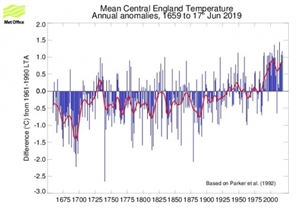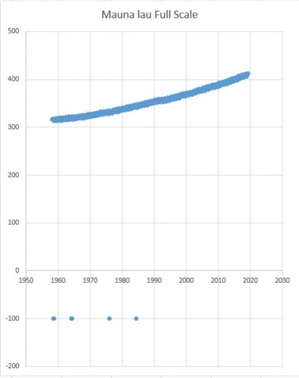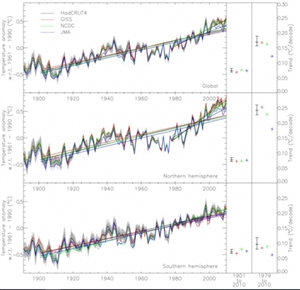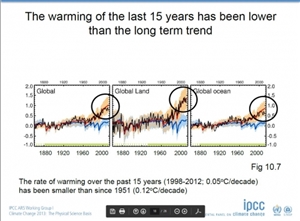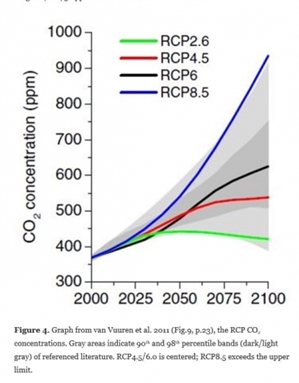https://www.washingtontimes.com/news/2019/sep/29/scientists-tell-un-global-climate-summit-no-emerge/
There is no climate emergency
A global network of 500 scientists and professionals has prepared this urgent message. Climate
science should be less political, while climate policies should be more scientific. Scientists should
openly address the uncertainties and exaggerations in their predictions of global warming, while
politicians should dispassionately count the real benefits as well as the imagined costs of adaptation
to global warming, and the real costs as well as the imagined benefits of mitigation.
Natural as well as anthropogenic factors cause warming
The geological archive reveals that Earth’s climate has varied as long as the planet has existed, with
natural cold and warm phases. The Little Ice Age ended as recently as 1850. Therefore, it is no
surprise that we now are experiencing a period of warming.
Warming is far slower than predicted
The world has warmed at less than half the originally-predicted rate, and at less than half the rate to
be expected on the basis of net anthropogenic forcing and radiative imbalance. It tells us that we are
far from understanding climate change.
Climate policy relies on inadequate models
Climate models have many shortcomings and are not remotely plausible as policy tools. Moreover,
they most likely exaggerate the effect of greenhouse gases such as CO2. In addition, they ignore the
fact that enriching the atmosphere with CO2 is beneficial.
CO2 is plant food, the basis of all life on Earth
CO2 is not a pollutant. It is essential to all life on Earth. Photosynthesis is a blessing. More CO2 is
beneficial for nature, greening the Earth: additional CO2 in the air has promoted growth in global
plant biomass. It is also good for agriculture, increasing the yields of crops worldwide.
Global warming has not increased natural disasters
There is no statistical evidence that global warming is intensifying hurricanes, floods, droughts and
suchlike natural disasters, or making them more frequent. However, CO2-mitigation measures are as
damaging as they are costly. For instance, wind turbines kill birds and bats, and palm-oil plantations
destroy the biodiversity of the rainforests.
Climate policy must respect scientific and economic realities
There is no climate emergency. Therefore, there is no cause for panic and alarm. We strongly
oppose the harmful and unrealistic net-zero CO2 policy proposed for 2050. If better approaches
emerge, we will have ample time to reflect and adapt. The aim of international policy should be to
provide reliable and affordable energy at all times, and throughout the world.
https://clintel.nl/wp-content/uploads/2019/09/ecd-letter-to-un.pdf
At last some people talking sense. After the relatively rapid rise of around 1°C between 1975 and 2000 in the Northern Hemisphere the temperatures have been relatively flat.
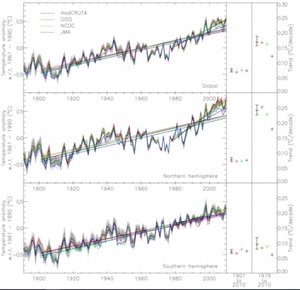
https://www.metoffice.gov.uk/hadobs/hadcrut4/figures/Figure11.png
We certainly need to reduce our consumption of finite resources and reduce our impact on the planet but focusing on CO2 is not the way to do it. Let's start with real pollutants that are directly harmful.
Best regards
Roger
